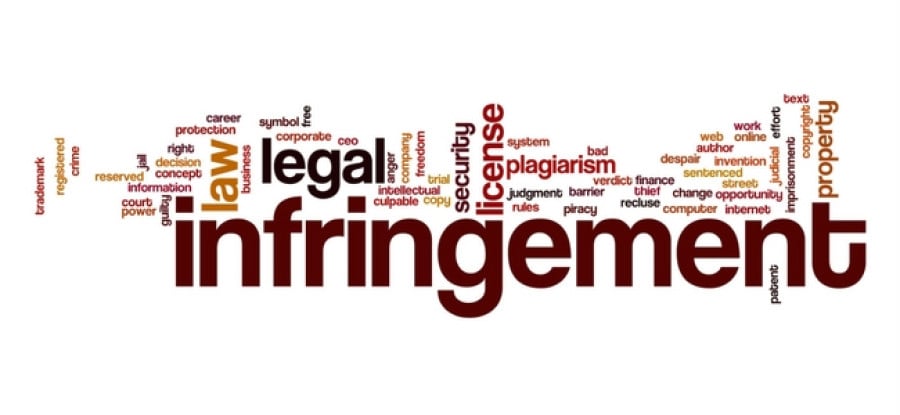How sports rights holders can protect against IP infringements in India: Part 2 - taking legal action & remedies

Rapid changes in technology, media and the pattern of consumption of content have paved the way for a growing range of unauthorized uses of intellectual property rights (“IP”) in India. In particular, the barriers to the illegal reproduction and retransmission of copyrighted content on the Internet are so low – with easy access to relevant software, huge distribution, unlimited broadband, and perceived negligible risks of prosecution – that piracy of content has become pervasive. This represents an enormous challenge for content owners, especially in a globally important sports market such as India.
While revenues are the major draw for sports rights owners, the intangible benefits gained from association with a sporting event or team such as brand recognition in the market and goodwill generated cannot be overlooked. IP infringements and freeriding by unaffiliated parties have a negative impact not only on the integrity of the sports rights owners’ rights but also on the sporting event as a whole. It is understandable that entities want to associate with major sporting events and teams to promote their business interests. While some of these are acceptable and fair uses, a majority of them can be considered IP or other infringements, and need to be addressed.
This article provides a step-by-step guide for sports rights owners to address IP infringements in India. The article is split into two parts.
Part 1, available here, explains the IP regime in India, looking specifically at:
- Types of IP - the IP assets that are protected by law in India, namely: copyright, trade marks, design rights, publicity/personality rights, and data rights;
- Registration requirements - the registration steps (if any) that need to be taken to ensure that IP assets are fully protected under the law; and
- How to establish a comprehensive rights protection programme - for sporting events, a rights protection programme is a systematic plan of action to protect the investment of and the exclusive rights granted to the sponsors, partners and licensees of an event
Part 2, below, moves on to considers how rights holders can protect their rights, looking specifically at:
- How to engage with infringers – the action that can be taken to try and stop a breach prior to commencing official legal proceedings;
- The legal remedies available to rights holders looking to enforce their rights - how to initiate legal proceedings against consistent infringers;
- Conclusion – authors’ comments on addressing IP infringement in India’s sports industry
ENGAGING WITH INFRINGERS
In the context of this article, it is imperative to understand the stakeholders or sports rights owners whose IP is being infringed. The primary sports rights owners are evidently the event organisers or the governing body of the sport. Event organisers often contractually or otherwise grant rights in specific properties in the event to other entities, most notably: broadcasters, franchise/team owners, sponsors, partners and service providers. Further, the sportspersons participating in the event can also be considered sports rights owners in certain circumstances relating to the use of the sportspersons’ name, image or persona without licence or authorisation.
NOTIFICATION TO INFRINGERS
Notifying the infringers and directing them to cease infringing the sports rights owners’ IP can be the first stage of action taken in engaging with infringers. Depending on the nature of the infringement and its impact, the severity of the notice may differ. As as illustrative example, a notice to an official partner overstepping the boundaries of the rights granted to it may be in the form of a legal communication, setting out a list of permissible and impermissible activities whereas a notice to a repeated infringer may be much more stringent, demanding full compliance within a specified time period, failure to comply with which will result in the initiation of formal legal proceedings.
In each case, notices must contain a statement of the sports rights owners’ rights as well as a list of demands for the infringer to comply with, in relation to ceasing the infringement. The demands may as well as the tone of the notice may differ, based on the nature of the infringement itself: for instance, in the case of unauthorised use of the sports rights’ owners’ name or image, the infringer might be directed to take down all such material making unauthorised use, but in the case of counterfeit merchandise the infringer may be directed to either dispose of the counterfeit merchandise or deliver the same to the sports rights owner and provide an account of profits. It has been noticed that in case of first time infringers or inadvertent infringements, the notice is most often sufficient to ensure that the infringer ceases and desists from making use of the sports rights owners’ IP.
In the case of purely offline infringements, in case infringers do not respond to notices even after reminders, the next step should be to either report the case to the relevant law enforcement agencies (as detailed in the next sub-section) or initiate legal proceedings in accordance with Step 5 below.
For online infringers, in the event the infringers do not cooperate with the demands prior to initiating legal proceedings or if the infringers have hidden their identities to avoid receiving notices the associated domain registry/internet service provider and a host of related service providers may be notified.
REPORTING INFRINGEMENTS TO LAW ENFORCEMENT AGENCIES FOR FURTHER ACTION
Given the lack of a specific legislation with respect to ambush marketing and related infringements, the effective tackling of the issue requires sports rights owners to liaision with local law enforcement agencies and the establish clear protocols in collaboration with them to assert their rights. A few examples are provided below:
Counterfeit Merchandise
In the case of counterfeit merchandise and merchandise making unlicensed use of the event names and marks, the sports rights owners may, in the event the manufacturers of such merchandise do not comply with the notice issued by the sports rights owner, either through a specialised agency or by themselves, conduct search and seizure raids to ensure that the infringing items (unlicensed merchandise in this case) are suitably seized, confiscated, or disposed of, as required depending on the nature and scale of the infringement. For instance, during the ICC Cricket World Cup 2011, the ICC, with help from the Bangalore police, seized a number of counterfeit goods and illegal merchandise and arrested hawkers.1
Direct-to-home accounts
On identifying pirate direct-to-home accounts, event organisers may report direct-to-home accounts being used for piracy to the television broadcaster, who then proceed to deactivate the associated cable accounts. There also arises the question of certain dubious direct-to-home set-top boxes that are widely marketed to the Indian diaspora around the world, and which provide unlimited content to unlicensed content. In 2014, Indian broadcasters came together to initiate police action2 against Jadoo TV, a notorious player in this space.
Black marketing of match tickets
At the ground level, the issue of black marketing of match tickets at public places can dealt through local municipal "anti-hawking" laws. As a representative example, in Bangalore, the activities of hawkers are regulated through The Karnataka Police Act, 1963.3 Section 92 of Act, 1963 relates to “Prevention of certain street offences and nuisance” and empowers the police authorities to imprison offenders. More specifically, the Act also empowers the local police authorities to regulate or prohibit the sale of any ticket or pass for admission, by whatever name called, to a place of public amusement. There have been instances of police authorities arresting individuals for black marketing of match tickets in Bangalore4 as well as other cities such as New Delhi,5 Indore6 and Kochi.7
INITIATING LEGAL PROCEEDINGS AGAINST CONSISTENT INFRINGERS
To continue reading or watching login or register here
Already a member? Sign in
Get access to all of the expert analysis and commentary at LawInSport including articles, webinars, conference videos and podcast transcripts. Find out more here.
- Tags: Board of Control for Cricket in India (BCCI) | Constitution of India | Copyright | Copyright Act 1957 | Cricket | Design right | Designs Act 2000 | Emblems and Names (Prevention of Improper Use) Act 1950 | India | Indian Penal Code | Indian Premier League | Intellectual Property | International Cricket Council (ICC) | International Olympic Committee (IOC) | Olympic | Paralympic | Patent | The Advertising Standards Council of India (ASCI) | Trade Mark | Trademark Act 1999
Related Articles
- Is sharing sports clips on social media an infringement of copyright under UK, European, Australian & US law?
- The winning formula for a successful sports brand: five key points
- How sports rights holders protect against IP infringements in India: Part 1 - overview of IP laws
- A guide to rights protection at major sporting events: Part 1 - identify rights & managing risk
Written by
Roshan Gopalakrishna
Roshan is Counsel (Sports & Entertainment) at LawNK, a Bangalore based niche law practice specializing in sports, intellectual property, media and information technology laws. In addition, Roshan is also the Chief Legal Counsel at Copyright Integrity International, a world leader in the protection of digital and broadcast rights. Roshan is a graduate of the National Law School of India University, Bangalore.
Shibumi Raje
Shibumi is an Associate at LawNK, a Bangalore based niche law practice specializing in sports, intellectual property, media and information technology laws.





